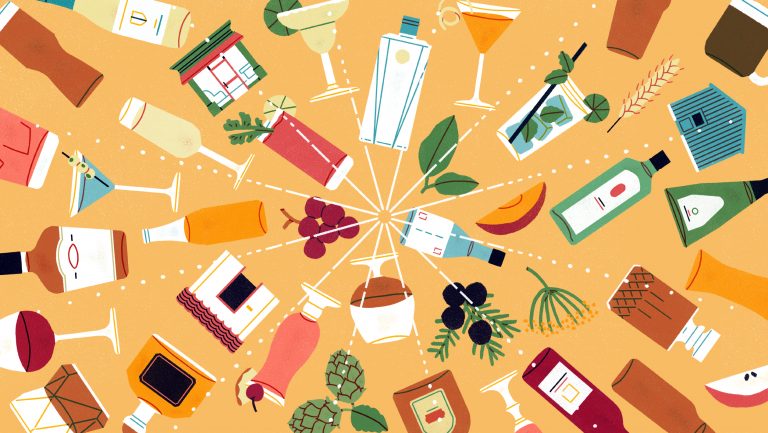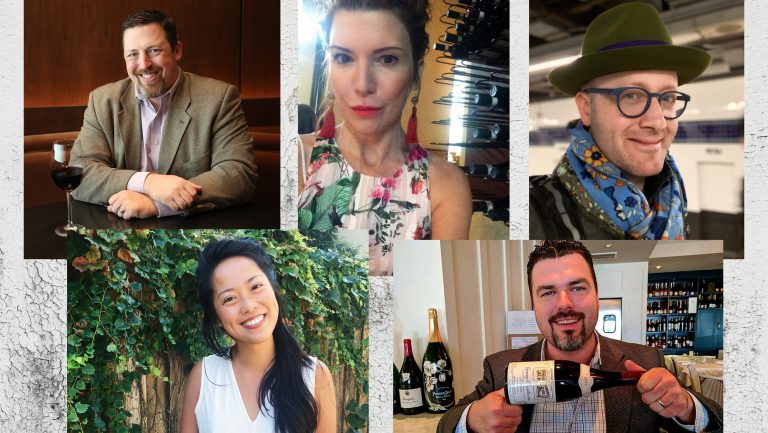Toting samples, connecting with buyers, working with winemakers, managing company sales goals—being a wine sales representative can feel as though you’re juggling a hundred balls at once. But it takes more than a strong knowledge of wine and spirits and a knack for selling to be truly successful in a distributor rep position. Many reps lean on unexpectedly handy skills that they’ve carried over from previous positions or careers—or ones that they’ve picked up on the job. From strategic financial planning to effective time management, experienced sales reps across the country share the skills that they draw on regularly to achieve success.
1. Rapport building
Wine sales is a relationship-based business, so the ability to cultivate relationships is essential to achieving success as a rep. Spencer Harrington, a wine consultant for the New York–based Winebow Group, spent 11 years as an editor at Archaeology magazine before joining the wine industry in 2001. After working briefly in retail, he thought that some of the interpersonal skills that he cultivated at the magazine would be beneficial in wholesale. “Oftentimes,” he says, “the thing that puts buyers most at ease is to tell them that you’re there to help them and be their advocate. You keep the company happy if you keep the customer happy, so ultimately the customers are the number one concern.”
Felicia Gonzales, the San Antonio market manager for Serendipity Wines, carried over her ability to manage client expectations from the time she spent working as a professional in hair care. As with distribution, Gonzales notes, “the hair-care industry was very much a relationship business.” In her salon role, she managed an array of clients, worked to accommodate their preferences, and built strong relationships with them over time. “There are many different personalities among buyers,” she says, “so I think it’s important to know how to sell to each one.”

Don’t miss the latest drinks industry news and insights. Sign up for our award-winning Daily Dispatch newsletter—delivered to your inbox every week.
2. Nailing an elevator pitch
Since reps are constantly meeting new buyers, introductions are crucial. “You should be able to say who you are, who you work for, and something about why that’s special—[and do it] seamlessly, within a minute,” says Jeremy Hart, the south-central division manager, based in Houston, for Banville Wine Merchants. “If you can’t, practice.” Hart recommends exchanging names and quickly outlining any portfolios in your book that might appeal to the account, then handing over a business card and asking to taste the buyer on one wine. Opt for something at or under $15 wholesale, he says, and if the buyer is too busy, leave the person a pour for later.
3. Cultivating a hospitality mentality
Because Hart worked on the bar and restaurant side of the industry, he’s determined to carry a mentality of hospitality into his daily sales strategy. He believes that going above and beyond can set one sales rep apart from the others. “Ask a buyer if you can teach their staff,” says Hart, “or taste the team on a new placement with a sample bottle.” It doesn’t hurt to get creative, either—for instance, Hart suggests doing something like treating the staff to fried chicken on New Year’s Eve as a thank-you for running your wine on special.
4. Using your backbone
After working in restaurants and as a studio manager in a production pottery business, Justina Ny, a sales representative for Négoce in Minneapolis, is used to interacting with all kinds of people. She knows that sometimes these interactions will be positive, and sometimes they’ll be negative. “I find that one of the biggest skills in this business is to not take things too personally,” she says. “You might get stood up, you might get scolded, and you might never get a sale at a particular account. It’s not personal—it’s business.”
Ryan Looper, a salesperson for T. Edward Wines in New York City since 2007, defines this skill as grit. “In the business of selling wine, there are virtually no constants,” he says, “so having the grit to hang in there and move forward when challenges come up is integral.” Looper makes a connection to his background as a classically trained musician. “Being a sales rep is like playing jazz,” he says. “Don’t get tied up about the wrong notes. Just keep playing.”

5. Time management
“There’s no set schedule for you as a sales rep,” says Ny, “so it’s easy to work too little or work too much.” She suggests planning out the day and setting an end-of-day goal time to avoid becoming overworked. Hart agrees with this idea, saying that when he was regularly making sales calls, he made the effort to know all of his buyers’ schedules. “It got to the point where I could see five accounts between 9:30 and 10:45 am,” he says, “whether it was to grab an espresso or splash off two wines.”
6. Deadline wrangling
Every day brings new deadlines in wine sales, so it’s good to learn how to prepare for them early on. “Wholesale is way more intense than my experience in publishing,” Harrington says, “but the timing of regular deadlines [in publishing] accustomed me to the notion that things have to get out the door by a set time.” It’s even better when sales reps can be proactive about deadlines, anticipating that others might forget them. Hart suggests thinking ahead about the buyer who might forget to order on time. “Reach out,” he says, “to [remind] them before the last call on orders that weekend.”
7. Written communication
Though face-to-face communication is essential, never underestimate the importance of clear, persuasive written communication, a skill Harrington learned from his magazine work. “It helps—no question,” he says, “especially in writing emails where I’m pitching wines. The training and grammar is very beneficial and helps to make me sound more convincing.”

Tips for maintaining a strong working relationship—even when things go awry
8. Attention to detail and active listening
Sales reps must be perceptive, both about wine and about working with buyers. Looper often draws on his music training in opera when it comes to paying attention to the small details. “The energy, core, and overtones of a sound inform the perception of the sound as a whole, but one has to learn to be aware of [those things],” he says, noting that this skill helps him taste and understand wines. Looper also emphasizes the importance of listening to buyers rather than overexplaining wines. “Listening well,” he says, “can connect you to buyers in a way that a wine never can.”
9. Problem solving
Working in restaurants enabled Ryan Musser, now a sales guide for Tenzing Wine & Spirits in Chicago, to become skilled at confronting and addressing problems daily. “That creative problem solving absolutely translates to sales,” he says. “I’m still working with a hundred different personalities, all with their own wants and needs, and I have to be a great partner for all of them.”
10. Financial planning
Brian Wallace, who now runs national and international sales for family-owned wineries as the owner of Luxury Wine Partners in Chicago, was a general manager for private country clubs and then worked as a sales rep for Wirtz Beverage (now Breakthru Beverage Group) and Winebow. He credits his experience in private club management for his ability to think analytically about the financial side of working as a sales rep.
“On the first of every month, as soon as I received the new sales goals,” Wallace says, “I immediately pulled up my account run and strategically planned my month. I knew if I didn’t plan right away, then the tactical side of the business would overwhelm, and I would be racing around at the end of the month.” He also used this strategic financial mind-set to benefit his customers. “At the end of the day,” he says, “you need to provide value to your buyers. I always made sure that everything I planned would work for my accounts and make them money.”
Courtney Schiessl Magrini is a Brooklyn-based wine journalist, educator, and consultant who has held sommelier positions at some of New York’s top restaurants, including Marta, Dirty French, and Terroir. She is currently the senior editor for SevenFifty Daily, and her work has appeared in Wine Enthusiast, GuildSomm, Forbes.com, VinePair, EatingWell Magazine, and more. She holds the WSET Diploma in Wines and Spirits. Follow her Champagne-fueled adventures on Instagram at @takeittocourt.